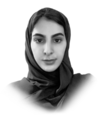Diagnosing the strengths and ills of AI in healthcare

https://arab.news/r9xz5
One of the main advantages of artificial intelligence-supported diagnostics is the exceptional speed and accuracy it offers. AI systems can analyze vast amounts of medical data, including patient records, images and lab results, at a pace far exceeding human capabilities.
Speed can be crucial in emergencies, enabling faster decision-making and potentially life-saving interventions. Additionally, AI has proven its accuracy in diagnosing diseases, from common conditions to rare disorders, detecting anomalies that humans might miss.
Diagnostic errors are a persistent concern in healthcare. AI systems, when properly trained and validated, can significantly reduce these errors, as the elements of fatigue or cognitive bias do not exist in this equation, enhancing the overall quality of medical decisions.
By integrating patient information with extensive medical databases and clinical guidelines, AI can help identify potential issues and ensure no aspect is overlooked. This leads to more reliable diagnostics and treatment plans.
AI-supported diagnostics also facilitate the transition to personalized medicine. They can analyze a patient’s genetic makeup, lifestyle, and medical history to create personalized treatment plans.
This personalization ensures patients receive the most effective treatments with fewer side effects. It also improves medication management and dosage.
AI has been applied in the fields of radiology and medical imaging, including X-rays, MRIs, and CT scans. Radiologists can benefit from AI assistance in detecting abnormalities, even in complex cases.
It is important to emphasize that AI is not intended to replace healthcare professionals. Instead, it should be viewed as a supportive tool. AI assists doctors and radiologists by providing data-driven insights, enabling them to make more informed decisions.
Saudi Arabia is investing heavily in AI-assisted diagnostics technology. Its “Eyenai” project is a collaborative effort involving the Saudi Data and AI Authority, King Khaled Eye Specialist Hospital, Lean Business Services, and the Saudi Company for Artificial Intelligence.
Developed by Saudi engineers and AI specialists, the project represents a pioneering solution in the field of ocular healthcare, using AI to accurately identify diabetic retinopathy. It relies on advanced analytics and smart algorithms to streamline and accelerate screening processes, overcoming challenges such as limited resources, examination time, and high costs.
Dr. Adi Al-Owaifeer, an ophthalmology consultant and head of the administrative committee for the Eyenai project, said that the initiative embodies the spirit of innovation and collaboration in Saudi Arabia’s healthcare system.
He also highlighted the importance of developing this solution to facilitate screening processes, increase accuracy, and treat as many individuals as possible.
The healthcare industry must work collaboratively with AI developers, regulators and policymakers to overcome these hurdles and pave the way for a more efficient, patient-centric system.
Abeer Alamrani
Microsoft recently introduced a suite of AI tools designed to help healthcare organizations access and enhance learning from data. In addition, Google has announced the development of an AI-powered tool to make it easier for professionals to search for health information.
Although AI can improve patient outcomes, increase efficiency, and reduce costs, integrating it into healthcare is not without its challenges.
First, AI systems require access to a vast number of patient records, raising concerns about privacy and security. Healthcare institutions must therefore implement robust measures to protect patient information from data breaches and cyberattacks.
Second, AI relies on high-quality, organized data for training and decision-making purposes. However, healthcare data can be unstructured, fragmented, or inconsistent, making it difficult for AI algorithms to derive meaningful insights.
Third, AI algorithms can inherit biases present in training data, which may lead to inaccurate decisions. Developing methods to identify and mitigate bias remains an ongoing challenge in AI ethics.
Fourth, obtaining regulatory approvals for AI-based medical devices and solutions can be a lengthy and complex process. Balancing innovation with regulatory compliance is a major challenge that healthcare companies must address.
Fifth, AI applications raise ethical questions, particularly regarding patient privacy, consent and transparency. Patients must be informed about how their data will be used and should have the right to opt out, and ethical guidelines should be developed.
Sixth, gaining the trust of healthcare professionals and patients is a significant challenge. AI systems must undergo strict clinical validation to prove their safety and efficacy, which can be a long and resource-intensive process.
Seventh, AI in healthcare requires substantial investments in technology, training and staffing. Healthcare providers must allocate resources for AI adoption and ongoing maintenance.
In conclusion, AI has the potential to bring about transformative changes to healthcare. However, addressing these challenges is essential to fully harness its benefits while ensuring patient safety, data security and ethical use.
The healthcare industry must work collaboratively with AI developers, regulators and policymakers to overcome these hurdles and pave the way for a more efficient, patient-centric system.
• Abeer Alamrani is a machine learning, data analysis, and AI implementation consultant who helps organizations leverage AI to optimize operations, enhance decision-making, and achieve business goals.




























